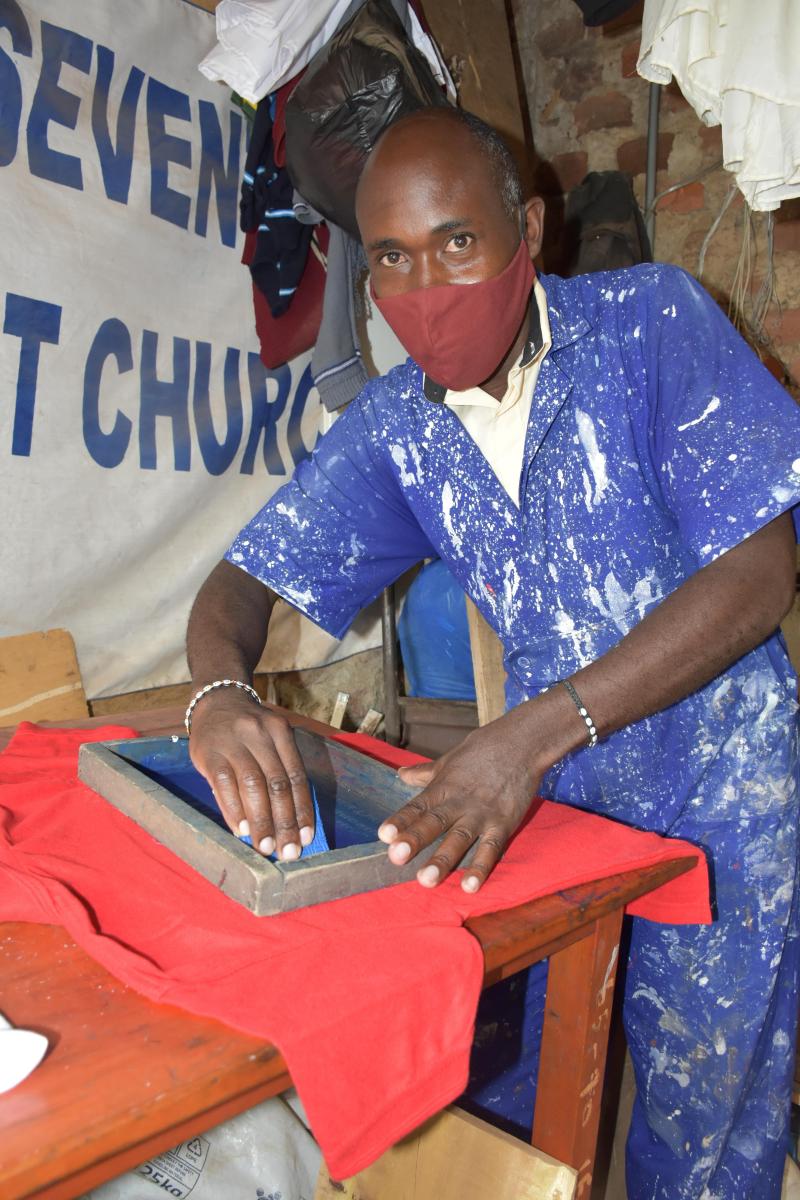In Uganda, an advert for a skills training programme changed Koojo’s life
Along Balya Road in Fort Portal, a
town in western Uganda on the foothills of the Rwenzori Mountains, there is a small
but busy graphic design shop, called Kabarole Red Enterprises.
The owner and manager, John Koojo,
proudly shows his equipment for making tie-dye embroidery and printing banners,
signposts and labels.
On display are screen printing
machines, printing films, computers, T-shirts, fabric ink and dye.
In less than 3 years, Koojo, aged 38, has made a name for himself.
The demand for branded goods and customised T-shirts is high in this fast-growing town. Among his customers are schools, churches, cooperatives and
businesses.
He owes his success to an advert he came across in 2017.
A graphic design teacher at Rosa Mystica
Institute offered a six-month course to whoever was interested.
The course was funded by the Belgian development agency as
part of a skills training programme, aimed at addressing the huge problem of
youth unemployment in Uganda.
Although Koojo had studied Arts and Design at the university some
20 years earlier, he lacked the practical experience. Indeed, the university
did not have any of the tools and machines needed in the present-day labour
market.
Failing to find a job after graduating
from university, Koojo had worked for many years at his uncle’s tailoring
workshop. The training course changed everything.
His art and graphics skills greatly
improved and with the sale of his first customised T-shirts, he was able to open
a shop in the town’s business centre. Now he earns about 1.5 million shillings
a month.
With that money, he has been able to
buy land, construct and furnish a house and send his three children to school.
Koojo is also passing on his skills to
other youth in Fort Portal. He trains them for three to five months and charges
500,000 shillings for the entire course.
‘If
they wish to stay and work for me, they are allowed and they earn a commission
on items sold and clients brought,’ he said.
Isaiah Buttuura, an IT student from
Makerere University, is one of his apprentices. Buttuura used the three-month
lockdown, introduced by the Government to fight COVID-19, to get the practical
skills needed to start up his own business.
“The training has helped me to acquire skills.
I was also able to earn some money which kept me going during the lockdown,” he said.
Koojo's long-term dream is to
transform his workshop into a quality training centre for unemployed youth.
“Let young people get hands-on training. Skills
development gives them a better chance to be job creators, rather than job
seekers,” he said.
The Skills
Development Fund of the Belgian development agency has so far benefitted
2,450 young people in the Albertine-Rwenzori region.
Dernières actualité de ce projet
Pas d'actualité

